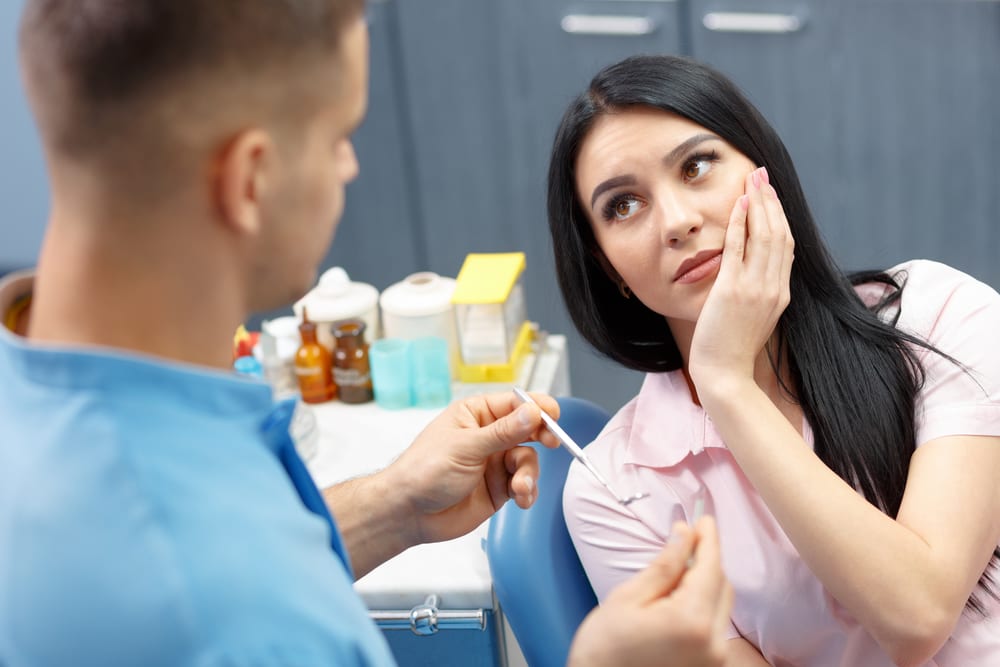In regards to dental extraction recovery, sometimes it’s easier to talk about what NOT to do than what you should do. By avoiding a few things during your recovery period, you can promote speedy, comfortable healing. Recovery times vary from person to person. Generally, you can expect a few days but sometimes a patient requires more down time, up to a few weeks. After your procedure, avoid the following six things, and treat your extraction site with lots of TLC.
Drs. Carson Ferris-Zeolla and Victoria Uryniak have years of experience in general dentistry services, including dental extractions. If you’re in the Clinton area and need gentle, effective dental care, contact Quality Dentistry at Walnut Pond today at 908-200-7007.
Don’t rinse for 24 hours
The first 24 hours are crucial to healing. Don’t disrupt the extraction site during this time, as a blood clot forms in the empty tooth socket to start the natural healing process. Avoid rinsing with mouthwash or swishing water in your mouth for the first day, because the motion could dislodge the blood clot. After 24 hours, it’s okay to rinse with a simple salt and water solution, or your prescribed solution, to remove food debris and ward off infection from the extraction site.
Don’t touch the sutures
Though it may be tempting to touch or inspect the extraction site, doing so can cause additional bleeding, dislodge a suture, or even lead to dry socket, a painful condition. Keep your fingers and tongue away from the site as much as possible. If food becomes stuck in the wound, gently rinse with a salt and water solution (or your prescribed solution) to remove it. Also, skip brushing or flossing around the area until at least four days after the procedure, or until your dentist gives approval.
Don’t use straws
Drinking through a straw creates suction, which can dislodge your blood clot and significantly impede your healing process. Skip the straw for at least two weeks after your procedure to avoid the risk.
Don’t smoke or drink alcohol
For a minimum of 24 hours after your extraction, do not smoke or drink alcohol. Both are detrimental to your mouth’s natural healing process, and alcohol can interfere with pain medication that your dentist may have prescribed.
Don’t eat crunchy or hard foods
Soft foods are recommended for the first few days after dental extraction. Eating a soft diet will lessen your chance of breaking a suture or getting fragments of food stuck in the extraction site. After a few days, you can slowly introduce more solid foods into your diet.
Don’t overexert yourself
During the first 24 hours, and for the first few days, it’s important to take it easy so that your body can spend more energy recovering. Stringent physical activity like running, lifting heavy objects, or even bending over can potentially dislodge the blood clot inside the wound, and cause more bleeding and discomfort.
If you’re preparing for a dental extraction, review recovery dos and don’ts with your dentist before the procedure. Schedule and attend your follow-up appointment the week after surgery so that your dentist can check in on your healing progress and remove sutures, if necessary.
Contact Us to Learn More!
Drs. Carson Ferris-Zeolla and Victoria Uryniak at Quality Dentistry in Walnut Pond take the time to explain recovery and expectations, and they will walk you through steps to help you heal comfortably. If you’re in need of a dental extraction, or cosmetic or general dentistry services, Drs. Carson Ferris-Zeolla and Victoria Uryniak are accepting new patients in the Clinton area. Call us today at 908-200-7007.







